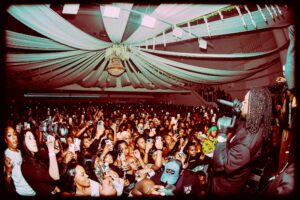What the party elders need to do now for Jamaica
IN any organisation, institution, sports team or country that is performing poorly, the most important cause is almost always lack of leadership. History substantiates the relationship between economic development and political leadership.
The role of political leadership in the process of economic development is one of the perennial questions which have challenged the economics profession and social sciences in general. Why do some countries achieve economic development and others fail to do so, remaining in a perpetual state of underdevelopment? This is what the late Professor George Beckford called “persistent poverty”.
In answering the question, why have countries failed? one approach is to study history and try to extract the lessons from economic success and economic failure.
Political leadership has been observed to be a critical influence on the efficiency of institutions, economic behaviour and investment incentives and it is these key ingredients that determine the economic success or failure of nations. For economic growth it is necessary to have effective political leadership.
Economic decisions are critical for determining the performance of an economy, but whether a country is poor or prosperous depends on politics. It can be argued that it is political leadership that determines what economic decisions are taken.
Economic success has and will occur in countries where the political leadership creates policies which make the economic environment conducive to growth. A predictable economic policy framework is key to fostering economic activity, productivity growth and economic prosperity.
The policy framework must ensure the security of private property, an unbiased system of law and a functioning market system in an atmosphere of law and order and citizen security.
The more profound question, of course, is what makes some societies produce good political leadership over a long enough period to ensure economic development.
Clearly, Jamaica is a case in which, despite some outstanding individuals, the political system has not produced enough of the type of leadership the country has needed since Independence in 1962. Good leadership in the political arena is not a historical accident or an act of God.
Every society, including Jamaica, has produced people with excellent leadership qualities. The problem is that in Jamaica the political culture and the party system do not garner the real talent, they do not attract desirable leadership. Instead, they attract those who aspire to the benefits of political position and the benefits therefrom.
Jamaica needs its brightest and best leaders to go into politics and public service. Politics needs people with the attitude extolled by the late President John F Kennedy: “Ask not what your country can do for you, ask what you can do for your country.”
Jamaica is caught in a crisis of political leadership. Both political parties need to refresh their leadership cadre and that can only happen in the short term if the party elders step aside, in some cases, or begin the succession process, in the interest of the country.












